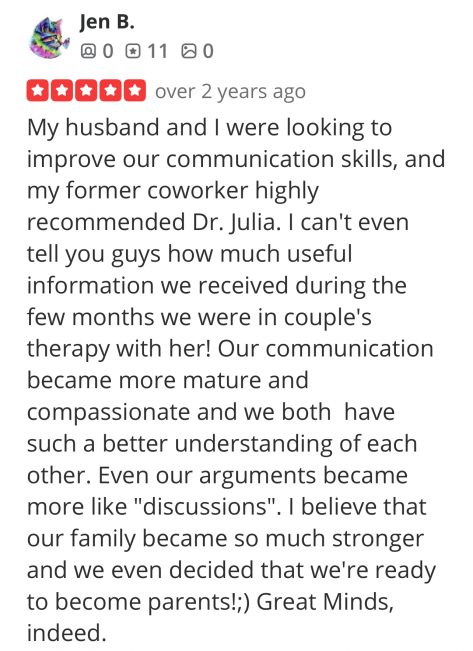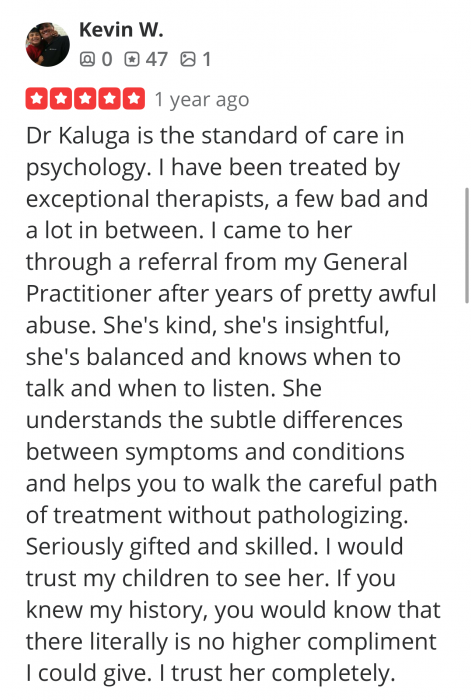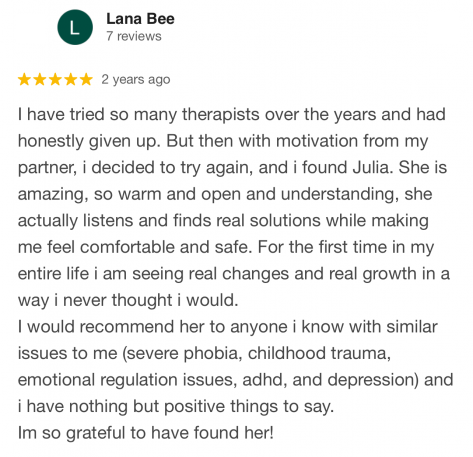Reach us by text, call, or email:
323-304-5777
[email protected]
Welcome to our practice, proudly rated #1 in California among Telehealth providers.
We understand the importance of convenience and comfort in your therapeutic journey, which is why our Telehealth therapy services eliminate the stress of driving and parking. You can receive the support you need from the comfort of your own home, at a time that suits you best.
Our rates are $220 per session for both Individual and Family/Couples therapy.
We are committed to making therapy accessible and will gladly provide a Superbill for insurance reimbursement if you are eligible.
Let us help you find peace and healing, wherever you are.
Great Minds think alike – we help yours heal and thrive!




